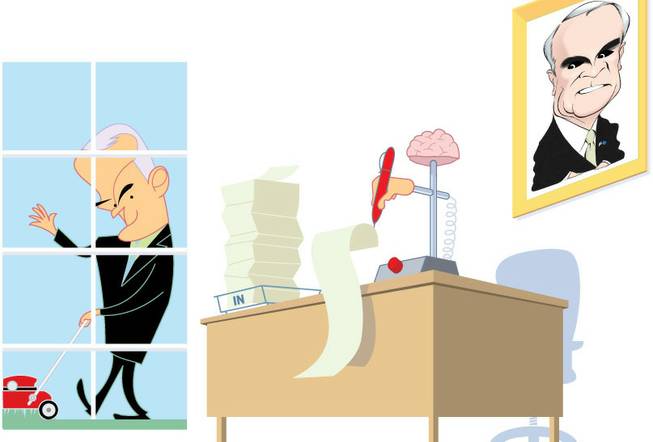
Chris Morris / Special to the Sun
Sunday, May 16, 2010 | 2 a.m.
Sun archives
- Hopey, changey, believey and “bs” — the new Jim Gibbons fundraising pitch (4-8-2010)
- Newly energized governor ready to hit campaign trail (3-12-2010)
- Gibbons files for re-election, says he’s ‘always been an underdog’ (3-11-2010)
- Weighing whether Gibbons will seek reelection (1-11-2009)
- Gibbons fires campaign manager over first lady remarks (12-30-2009)
- Gibbons sets lofty fundraising goal (8-20-2009)
- Political intrigue brewing in the 2010 governor's race (8-16-2009)
- Former cocktail waitress sues governor, former sheriff (10-14-2008)
- Gibbons: Nothing romantic about my embracing her (6-27-2008)
- Governor’s textual misconduct (6-12-2008)
- Mazzeo: ‘If he had apologized … it would have been done’ (2-10-07)
- New discrepancies in accounts from Gibbons, Mazzeo (12-28-06)
Gov. Jim Gibbons’ turn as Nevada’s CEO has been among the roughest in state history.
Certainly some of the suffering Nevada has endured on his watch — among the highest unemployment and foreclosure rates in the country — was largely beyond his control.
Yet when it was time for Nevada’s governor to act, friends and former staffers say Gibbons was unprepared and ill-equipped to tackle a high-profile job that by its very nature requires consensus-building, deal-making and bipartisanship — all under the bright light of the media.
Rarely has a politician’s personality been so ill-suited for the task at hand.
According to a dozen friends, former staffers and advisers, Gibbons fiercely covets privacy, disdains the legislative cocktail circuit and remains suspicious of fellow politicians’ motives. The result: He has spurned advisers and allies, failed to build legislative relationships and, former advisers say, fallen prey to a sort of paranoia.
For example, during last year’s legislative session, Assembly Speaker Barbara Buckley, a Democrat, with Gibbons’ staff took her teenage goddaughter on a tour of the governor’s office. Gibbons was out, and when his scheduler found Buckley in the office, she “freaked out,” according to someone who was there.
Gibbons not only berated his aides for allowing Buckley in but told a former staffer he later had the office swept for recording devices.
It was an indication that Gibbons, in many ways, has been broken by the office he sought with such fervor.
Although rigid conservatism and distrust of the political process made him popular with rural voters, who elected him to five terms in Congress, those traits have hobbled his governorship, leaving him a solitary man on a long road to re-election.
For his part, Gibbons disputes those characterizations. In a Sun interview last week, he said he had been targeted by the media, arguing that he had held the line on taxes, balanced budgets in perhaps the toughest economy in the state’s history and advanced energy initiatives that have positioned Nevada for recovery. Gibbons said his challenge is not unlike that of other governors who have dealt with massive budget deficits in this recession.
“Governors of other states have had to make difficult choices, too. Choices that are parlayed into disputed comments in the media about whether or not that individual or that governor cares about that specific program because he has to reduce the funding to it,” Gibbons said. “I care about Nevada. I care about the people. I care about whether they’ve got a job. And to lighten the load of government is the only answer to resolving our economic times.”
Private man, public office
Even to longtime friends, Gibbons remains somewhat of an enigma, keeping people at a distance and closely guarding his feelings.
Sig Rogich, a former adviser, cited Gibbons’ background as a geologist and combat and commercial pilot.
“He’s a guy who has done things, for the better part, alone,” he said. “He’s a guy who likes to hunt for rocks in the desert. It takes an unusual breed of guy to do those kinds of things by yourself. It gets in the way of that backslapping, outgoing personality you need to be governor, and he never really got a good footing.”
In Washington, Rep. Gibbons kept long hours, embracing his role in top-secret military intelligence briefings. He favored the privacy of his office to the Washington social scene.
Former staff said his social life revolved around weekly trips to a burger joint called the Roadside Grill, where he would meet military friends to swap tales about airplanes and hunting.
He returned to Reno most weekends, spending entire Sundays mowing his lawn — an act he treated as sacred ritual.
“He mowed both ways. It was like a mission with him,” a former adviser said.
When local officials would visit his congressional office to lobby for federal funding, Gibbons viewed them with suspicion, according to former staff.
Robert Uithoven, his former chief of staff in Washington and one-time gubernatorial campaign manager, said Gibbons delighted in playing the outsider.
“No one in this state has ever been more anti-establishment than Jim Gibbons,” he said. “We used to say that nobody supports Jim Gibbons but the voters.”
And yet, in 2005 Gibbons sought the establishment’s help in his second run for the governor’s office. (He ran in 1994.)
It was an awkward courting. Gaming, the state’s most powerful interest, backed him less out of conviction and more out of fear that his Democratic opponent, then-state Sen. Dina Titus, would raise its taxes, lobbyists said.
Those closest to Gibbons say his wife, Dawn, a former assemblywoman, rounded out his political persona, working rooms on his behalf and charming donors and supporters.
His aborted announcement tour, cut short by Hurricane Katrina, portended a bumpy campaign. Gibbons returned to Washington for an emergency funding vote.
As the campaign entered its final months, Gibbons showed signs of strain, staff said. Running for the state’s most public office conflicted with his intense need for privacy.
On one occasion, unable to reach Gibbons for a Sunday news conference, an aide went to his house. Gibbons, it turned out, had run over his BlackBerry with his lawn mower.
Then came what former aides refer to as “Friday the 13th.” After a night of drinking with campaign advisers and volunteers, Gibbons stood accused of assaulting a Las Vegas cocktail waitress. The woman declined to press charges and Metro Police closed its investigation, but the allegations stunned several friends and advisers, who described Gibbons as the consummate gentleman, someone who stands when a woman enters the room.
Paranoia swept through the campaign. Those closest to Gibbons, including his wife, tried to convince him that he had been set up — by Uithoven, his campaign manager. Although the notion was absurd on its face (Uithoven had spent eight years in Gibbons’ Washington office), former advisers say Gibbons entertained the theory and viewed Uithoven with suspicion in the final weeks of the campaign.
Gibbons won the election. Still, having reached the pinnacle of Nevada’s political establishment, he felt like an outsider from Day One.
In last week’s interview, Gibbons grumbled that he had been shut out because of Gov. Kenny Guinn’s “resentment that I was elected.”
The bad blood went back to 2003, when Guinn, Gibbons’ Republican predecessor, shouldered an unpopular tax hike to balance the budget. Gibbons, in a speech to the Legislature, attacked Guinn’s plan.
Other than “picking up the pieces of the previous administration,” Gibbons said he took to the office naturally.
Carson City demanded more day-to-day engagement than Washington, though. And Gibbons came across as aloof. He did, however, revel in the title of governor, staff said. Gibbons, who shunned the perk of valet parking and stored his war medals in a closet, was announcing himself as “Gov. Gibbons” in routine phone calls to longtime aides.
He guarded his privacy. Gibbons told his scheduler to keep his schedule confidential. Top staff would often learn that Gibbons was out of state from Lt. Gov. Brian Krolicki, who, in accordance with the constitution, took over when Gibbons left Nevada.
Robin Reedy, who took over in July as Gibbons’ chief of staff, confirmed the restricted access to his schedule, saying: Gibbons believed that his former staff would tip off the media about his whereabouts so reporters could “ambush him.”
Josh Hicks, Gibbons’ former chief of staff, defended former staff and denied any such behavior. “I cannot imagine any of them leaking information in an attempt to embarrass the governor,” he said in an e-mail.
Personal and professional lives
Amid a messy divorce, Gibbons lost the assistance of his wife, Dawn, who had been the one to host legislators at the Governor’s Mansion, trying to build alliances, making friends of enemies.
His relationships quickly deteriorated, with staff and legislators alike. If he had settled on a position, he was immovable, they said. Compromising would be a defeat.
In the interview, Gibbons took pride in his rigidity.
“Maybe these other individuals would prefer to have a backslapping, go-along-to-get-along kind of governor that allows them to run and buy the state of Nevada. I won’t do that. I’m very much more principled than that,” he said. “I won’t sell Nevada to the highest bidder. Maybe that’s why they are so opposed to my continuing in this job”
Gibbons began seeking outside advice as early as 2007, from a few longtime friends, including Kathy Karrasch, the estranged wife of a Reno podiatrist. That relationship erupted in scandal when it was discovered that Gibbons had used his state cell phone to send more than 800 text messages to her over a five-week period during that year’s legislative session.
Addressing reporters, he said he had sought her advice on state matters.
Another friend he frequently turned to was Howard Weiss, a Reno RV dealer.
Weiss declined to discuss their conversations, but his brief remarks illustrate how embattled Gibbons and his inner circle feel.
“When you play in the arena he does, if you can’t take bullets whizzing over your head and hand grenades flying at you, you better get out,” Weiss said.
In 2008, he turned to friend Robert Olmer to manage his campaign.
With his divorce still playing out, Gibbons pursued dating throughout 2008 — against counsel of close advisers, who worried about more tabloid headlines. Sure enough, the headlines followed, as well as photos of Gibbons and Leslie Durant, a former Playboy model.
By mid-2009, the media scrutiny was intense and damage control seemed impossible, Olmer said.
“I don’t think he understands the private life and the public life overlap as much as they do,” he said.
Seeing Gibbons as weak and ineffective, key supporters abandoned him for his chief rival in the primary, former federal Judge Brian Sandoval.
In an interview, Gibbons seemed liberated by the defection, quoting former President Harry Truman: “If you want loyalty in politics, go find a dog.”
And yet Gibbons was quick to turn on the few left in his inner circle. In December, he abruptly fired Olmer for comments he made after Gibbons’ divorce settlement. Asked about the state losing its first lady, Olmer told a Reno newspaper, “Any first lady is to a large extent window dressing.” The comment appeared in a story about the Gibbons’ missteps that could turn off female voters. Gibbons said he couldn’t lose any more female support.
Olmer, however, was relieved. “I felt I had done all I could do for him,” he said.
Gibbons then turned to Ron Bath, a UNR fraternity brother and retired Air Force general, to run his campaign.
By all accounts, Gibbons has been reinvigorated by a new, aggressive staff. During February’s special legislative session, he worked to close a more than $800 million budget gap, participating in negotiations with legislative leaders, who said it was the most Gibbons has been engaged since taking office.
“I think he was satisfied that he was working and effecting some change. I saw a happy governor when that was happening,” Bath said.
Gibbons never considered bowing out of his race for re-election, despite lackluster fundraising and low approval ratings. So, Gibbons and his team have used the bully pulpit, unveiling proposals from the conservative movement’s wish list, including eliminating collective bargaining for public employees, instituting school vouchers and suing the federal government over the new health care law.
“Look, we’re military guys,” Bath said. “We’re going to go into this fight with whatever we’ve got and we’re going to do the best we can.”
‘Same amount of friends’
On a cold and windblown Saturday in late March, Gibbons, dressed in cowboy boots and faded bluejeans, ascended the back of a flatbed trailer and took to the microphone. He was seeking solidarity with about 8,000 Tea Partyers who had gathered outside Sen. Harry Reid’s hometown of Searchlight.
Gibbons — who has used the Great Recession to rail against the establishment and trim one of the country’s leanest state governments — was, arguably, a Tea Party governor before the movement existed.
“We here in Nevada hear you,” he told the crowd, many from surrounding states. “We’re here not to protest but to celebrate the freedom, the liberty to tell those elected officials who have not been listening to us — it’s about time or you’re out.”
He sounded more like a spurned activist than an incumbent governor. But Gibbons has always occupied a unique corner of Nevada politics, passing as the consummate outsider while navigating the halls of power.
“He will leave office with the same amount of friends as he had coming in, and he’s just fine with that,” a former aide said.
Sun reporters J. Patrick Coolican and David McGrath Schwartz contributed to this story.
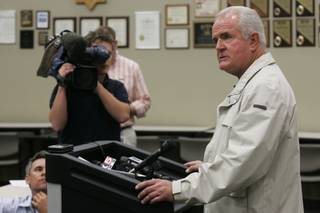
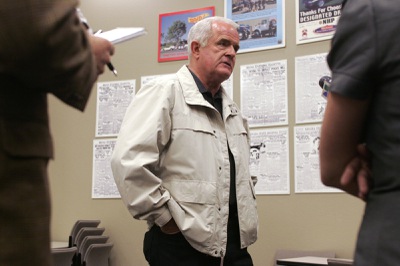
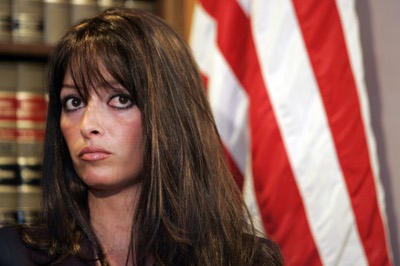
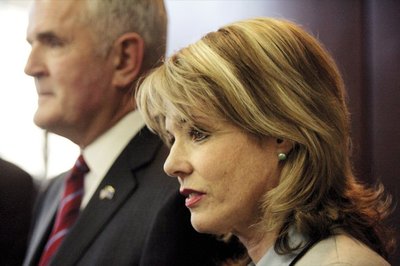
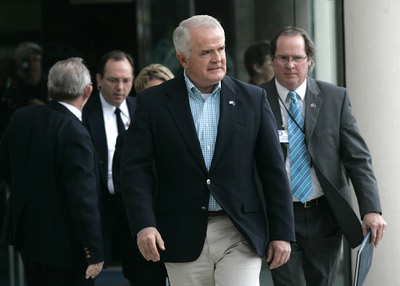

Join the Discussion:
Check this out for a full explanation of our conversion to the LiveFyre commenting system and instructions on how to sign up for an account.
Full comments policy